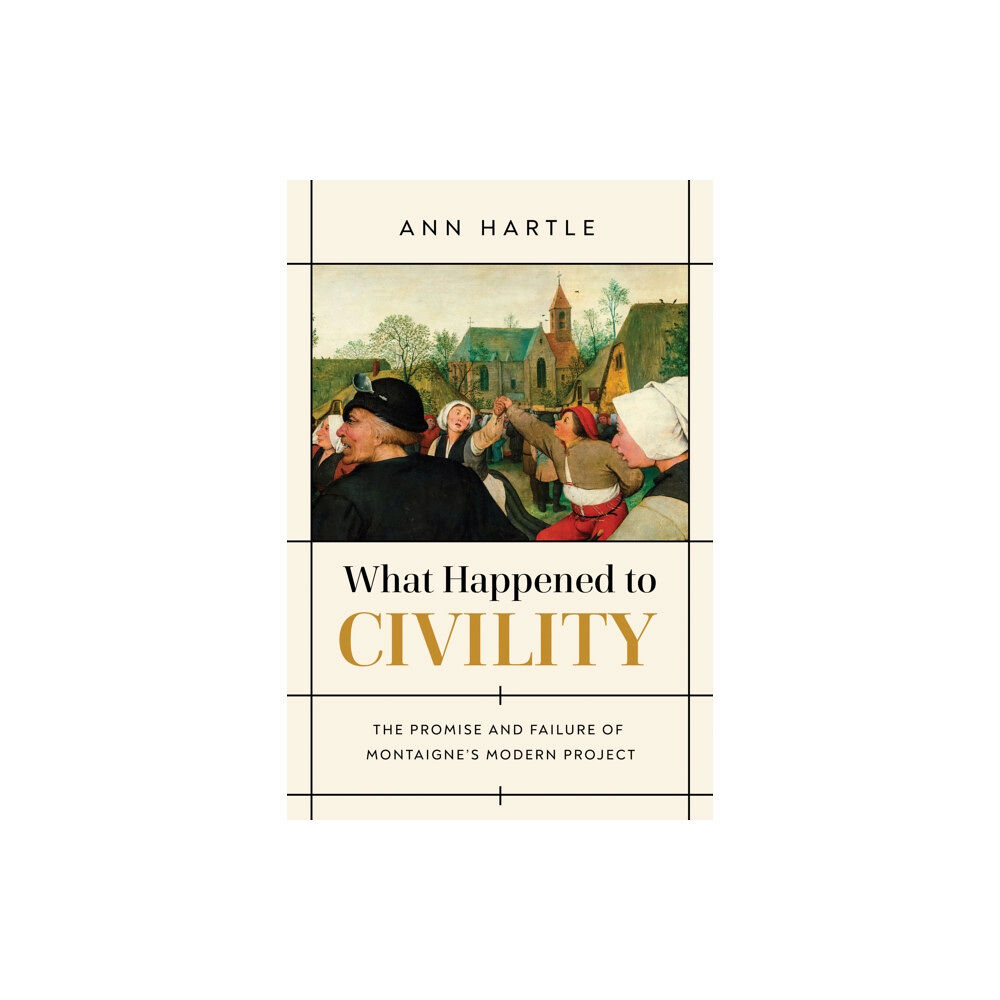What is civility, and why has it disappeared? Ann Hartle analyzes the origins of the modern project and the Essays of Michel de Montaigne to discuss why civility is failing in our own time.
In this bold book, Ann Hartle, one of the most important interpreters of sixteenth-century French philosopher Michel de Montaigne, explores the modern notion of civility—the social bond that makes it possible for individuals to live in peace in the political and social structures of the Western world—and asks, why has it disappeared? Concerned with the deepening cultural divisions in our postmodern, post-Christian world, she traces their roots back to the Reformation and Montaigne’s Essays.
Montaigne’s philosophical project of drawing on ancient philosophy and Christianity to create a new social bond to reform the mores of his culture is perhaps the first act of self-conscious civility. After tracing Montaigne’s thought, Hartle returns to our modern society and argues that this framing of civility is a human, philosophical invention and that civility fails precisely because it is a human, philosophical invention.
She concludes with a defense of the central importance of sacred tradition for civility and the need to protect and maintain that social bond by supporting nonpoliticized, nonideological, free institutions, including and especially universities and churches. What Happened to Civility is written for readers concerned about the deterioration of civility in our public life and the defense of freedom of religion.
The book will also interest philosophers who seek a deeper understanding of modernity and its meaning, political scientists interested in the meaning of liberalism and the causes of its failure, and scholars working on Montaigne’s Essays.
| Format |
Häftad |
| Omfång |
190 sidor |
| Språk |
Engelska |
| Förlag |
University of Notre Dame Press |
| Utgivningsdatum |
2022-04-15 |
| ISBN |
9780268202330 |

